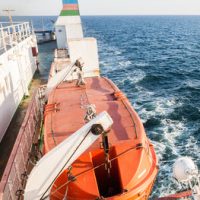Required Safety Equipment On Boats In Florida

Florida law requires that every vessel on the water has certain safety equipment. Failure to have the mandated safety equipment on boats can result in serious civil penalties as well as risk the wellbeing of everyone on board. If you or someone that you know was injured on a boat near Delray Beach that did not have the proper safety equipment onboard, you may be entitled to compensation for your injuries. At Earnhart Law, our dedicated and experienced Delray Beach personal injury attorneys are here to provide a knowledgeable assessment of your case. Call or contact us today to learn more.
Required Safety Equipment
Different sizes of vessels have different required safety equipment. For boats that are sixteen feet or less across, including kayaks and canoes, Class A recreational boats mandate the following:
- Boat lighting,
- Ventilation system,
- A sound-producing device (ex: bell or horn),
- Fire extinguisher that fits the size of vessel,
- Visual distress signals (if on coastal or high seas water),
- Type I, II, or III personal floatation device for every person onboard
For moderate-sized vessels between sixteen and 26 feet long, in addition to the required safety equipment for smaller boats these vessels also mandate the following:
- A throwable Type IV floatation device,
- Every person under six years old must wear a Type I, II, or III personal floatation device while the vessel is operational,
- Backfire flame control,
- Approved daytime and nighttime visual distress signals
Class 2 and Class 3 vessels also have required safety equipment, such as whistles or bells that can be heard from at least one nautical mile away.
Liability in Boat Accidents
If a vessel does not have the correct safety equipment and an accident occurs, those responsible for maintaining the boat may be held liable for any injuries that occur. In many cases, liability may rest with the individual owner of the vessel. However, if the vessel is owned by a company that operates multiple boats, the company could also be held liable for any accidents. If the proper safety equipment is onboard a vessel but it malfunctions during an accident, the manufacturer of that safety equipment could be held responsible for the product defect and any injuries that result on the reliance on that equipment. An experienced boat accident lawyer can help identify all responsible parties in an accident where the proper safety equipment is not present on a vessel and ensure that victims receive the full and fair compensation that they deserve for their injuries.
Call or Contact Earnhart Law Today
All boat owners understand what safety equipment is supposed to be on a vessel, and they must be held accountable when they fail to take the proper safety protocols before letting others onboard. In Delray Beach, the knowledgeable and skilled boat accident lawyers at Earnhart Law are here to help. Call the office or contact us today to schedule a free consultation to learn more about your legal options after an accident.
